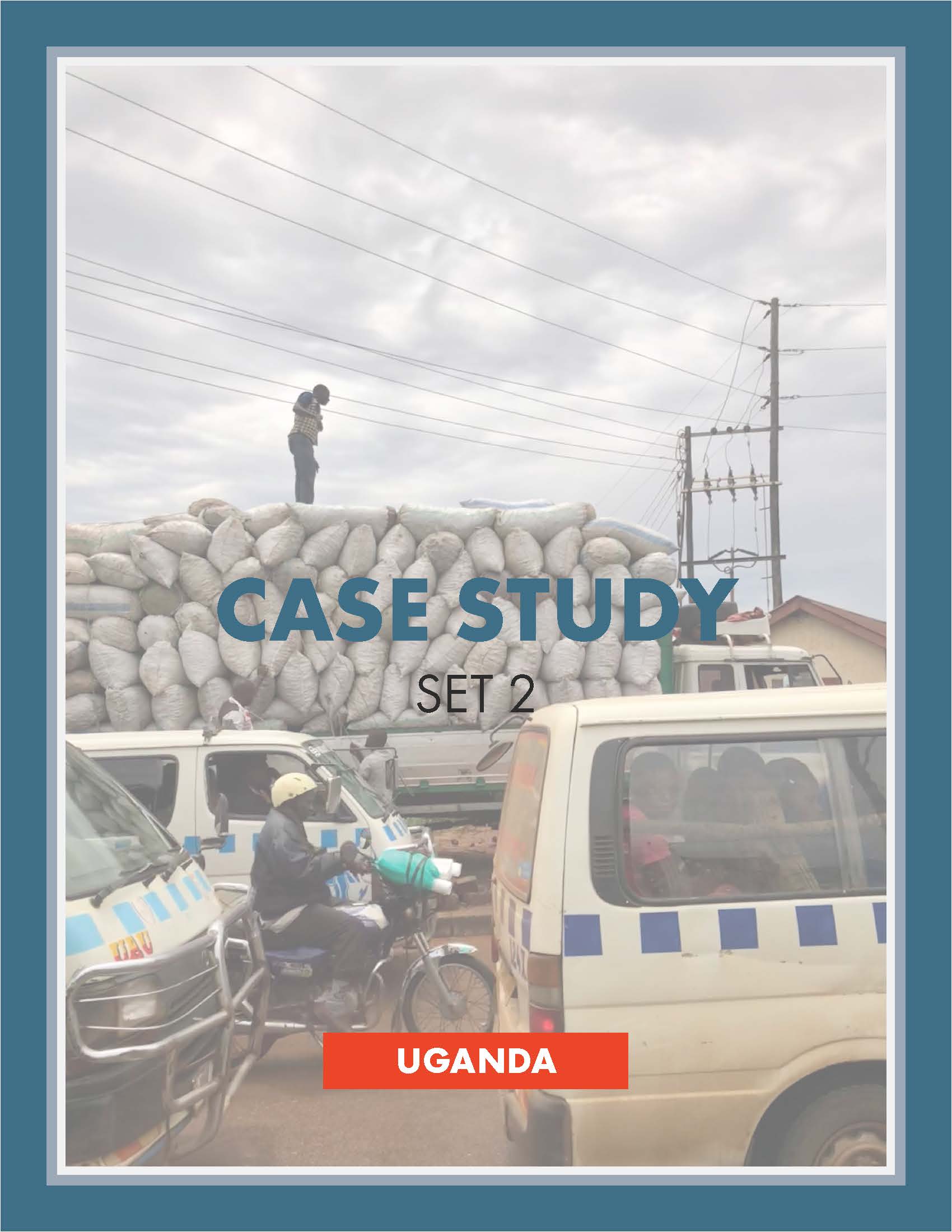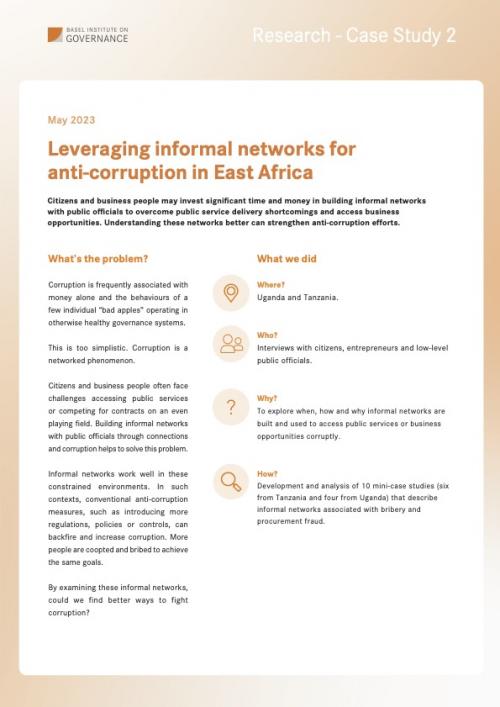Case studies from Uganda: GI-ACE research on informal networks and corruption
The four case studies in this collection form part of a research project entitled Harnessing informality: Designing anti-corruption network interventions and strategic use of legal instruments” funded by UK Aid as part of the Global Integrity Anti-Corruption Evidence Programme (GI-ACE).
The research project aimed to understand how informal networks that are associated with different types of corruption are exactly articulated, operationalised and managed, with a view to distilling lessons of value to anti-corruption practitioners.
The case studies describe informal networks associated with bribery and procurement fraud. They include visual graphics of the informal networks and connections between different actors.
Together with the research report and six case studies from Tanzania, they shed light on the functioning of informal networks in East Africa. The case studies were prepared with the help of Robert Lugolobi, independent consultant.
Contents:
- The use of informal networks to obtain a driver’s licence
- Network transactions involving the land registration office
- Informal networks in the transport, tour and ticketing business
- Informal networks in the chemical sector
Links and other languages



